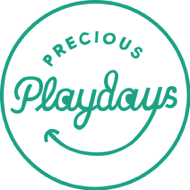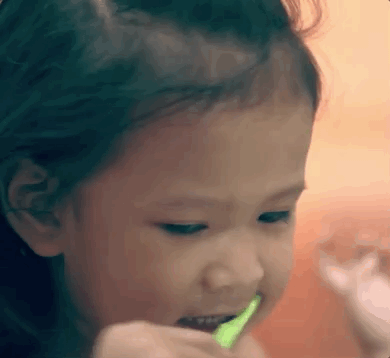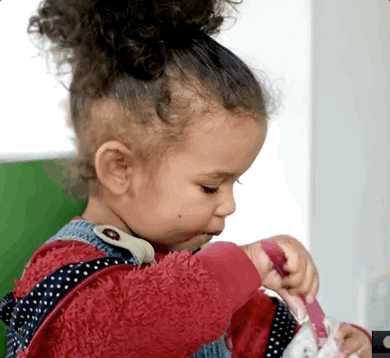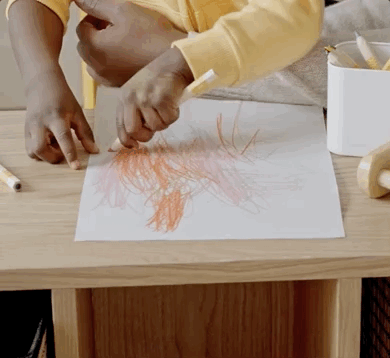I have put together a very short video to help parents and practitioners understand why using tools in early childhood education is important.
In addition, if you scroll down, you will see that I have suggested some activities with children at home (or in preschool) that promote tool use.
We all learn and digest information in different ways. If you prefer to read rather than watch a video, I’ve got you, here is the dialogue from the video:
Tool use in early childhood is of paramount importance as it serves as a cornerstone for cognitive, motor, and social development. From simple objects like spoons and crayons to more complex tools like blocks and puzzles, children learn to manipulate and interact with their environment through tool use. Engaging with tools fosters motor, perceptual , and spatial awareness as children grasp, and manipulate objects. Tool use encourages problem-solving and critical thinking skills as children learn to use tools to achieve specific goals or tasks. Tool use promotes social interaction and collaboration as children engage in cooperative play and shared problem-solving experiences. Tool use can facilitate language development as adults describe their actions and observations while using tools, expanding the child’s vocabulary and communication skills. Overall, tool use in early childhood lays the foundation for a range of essential skills that are integral to lifelong learning and success.
Brushing teeth
The importance of teeth brushing in early childhood cannot be overstated, as it plays a crucial role in establishing good oral hygiene habits and maintaining overall health.
Regular teeth brushing helps to prevent tooth decay, cavities, and gum disease by removing plaque, bacteria, and food particles from the teeth and gums. By starting this habit early, children develop a foundation for lifelong oral health
FeEding Themselves
Allowing an infant and toddler to use a spoon to feed themselves fosters independence and fine motor skill development. It also encourages self-regulation of food intake, promoting healthy eating habits from an early age.
making marks
Using tools to make marks in the early years lays the foundations for writing later in education by developing hand strength and control. It also helps children understand the connection between external symbols and meaning which is essential for literacy development.
Potty Training
Children undergoing potty training are learning to use a tool (toilet or potty). Like any other tool, it takes time to master the muscles and sensations necessary to regulate toileting. It does not require rewards or punishments to help it along its way. All children need is patience and time.
When potty training, please send lots and lots of pants and changes of clothes to preschool.
Tool Use
We have a variety of different tools that are available to the children, including scoops, hole punchers, graters, children’s knives, tongs, pens, pencils, paint brushes, etc.






